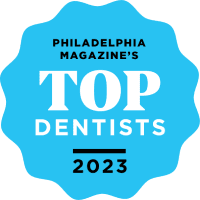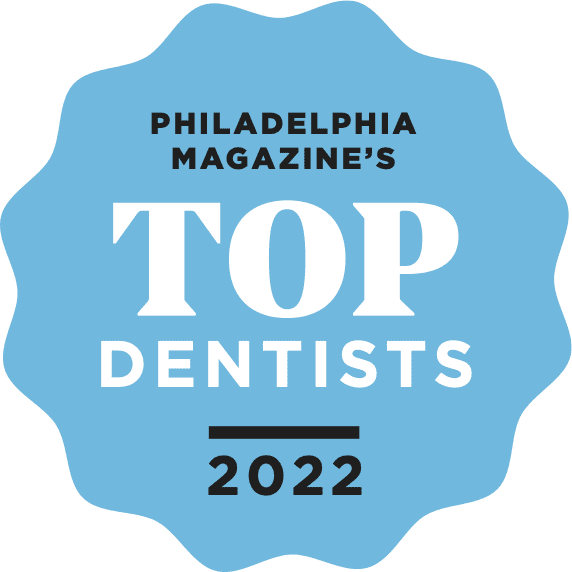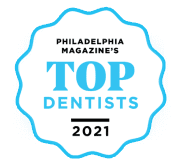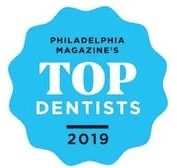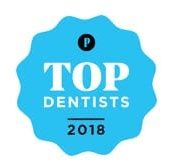Why Choose Tooth Bonding?
Tooth bonding is a treatment that dentists use to improve the appearance of teeth. As an economical alternative to porcelain veneers, tooth bonding gives teeth a natural look. Dr. Drew Shulman offers tooth bonding in his cosmetic dentistry in Northeast Philadelphia, PA for patients of all ages. Cosmetic bonding can offer multiple benefits to patients as it is stain resistant and durable.
Dentists use tooth bonding as a restorative and cosmetic dental treatment to:
- Fill cavities
- Correct tooth discoloration
- Repair decayed teeth
- Fill gaps between teeth
- Repair cracks and chips in teeth
- Repair broken teeth
- Elongate short or worn teeth
- Hide the appearance of uneven teeth and crooked teeth
Dental bonding is ideal because almost every patient is eligible for tooth bonding. Since it’s temporary and the dentist can easily remove it, they will even use it to correct problems in children’s baby teeth.
One of the most cost effective dental solutions, cosmetic dental bonding is good for people that are on a strict budget. If you’re not sure about a permanent restoration, bonding can act as a test drive. Best of all, the procedure is non-invasive, so it’s a quick and easy painless treatment.
The Tooth Bonding Procedure
The tooth bonding process begins with a comprehensive dental exam. Dr. Drew Shulman will evaluate your issues, conduct a bite analysis, and recommend the most relevant treatment options.
If dental bonding is the most appropriate treatment, he will prepare your tooth and the bio-composite resin. Most dental bonding procedures do not need local anesthesia, because it is a painless process.
First we will begin by applying the resin on to your tooth. Dr. Shulman will color-match the compound to your teeth for a natural look, and sculpt it into a natural shape. We will make sure you are happy with the result before curing it. After your approval, we will cure it with a special UV light and polish it.
Dental bonding only requires one short visit to our dentist office. The procedure also maintains tooth structure, which is integral to maintaining good oral health. You should avoid drinking tooth-staining beverages like tea, coffee, and wine for 48 hours after the procedure.
Your tooth may become a little sensitive to hot and cold foods after the cosmetic dental procedure. But this is temporary and will go away after the tooth adjusts to the bonding compound.
Tips for Aftercare to Maintain the Longevity of Your Bonded Teeth
Proper aftercare is crucial to maintain the longevity of your tooth bonding results. After undergoing tooth bonding, follow dental hygiene practices that will help protect and preserve your newly bonded teeth.
One of the key tips for aftercare is to practice good oral hygiene. This includes brushing your teeth at least twice a day with a soft-bristled toothbrush and fluoride toothpaste. Be gentle when brushing around the bonded teeth to avoid damaging the bonding compound.
In addition to regular brushing, flossing should also be a part of your routine. Use dental floss or interdental cleaners to clean between the bonded teeth, remove any food particles and plaque buildup.
Another tip for proper aftercare is to avoid stain-causing substances. Certain foods and drinks can cause staining on your natural teeth as well as on the bonded material. Try to limit or avoid consuming staining beverages such as coffee, tea, red wine, and dark-colored sodas. Be sure to rinse your mouth after consuming these beverages to help prevent the sugars from causing damage.
Regular dental check-ups are essential for maintaining the longevity of your bonded teeth as well. Visit your dentist at least twice a year for professional cleanings. Dr. Shulman will be able to assess the condition of your bonded teeth and make any necessary adjustments. He will monitor their health so they don’t create issues in the future.
Tooth Bonding FAQs
How long does tooth bonding last?
Depending on the tooth’s location, tooth bonding can last from 4 to 8 years. Tooth bonding is not a permanent solution for all cases. If you need a more permanent solution that can fix the same problems that bonding can fix, we may suggest porcelain veneers.
Does tooth bonding hurt?
The tooth bonding process does not hurt. The process is quick and painless with no downtime. After your bonding procedure, you will be able to almost immediately use the tooth without issue.
Does tooth bonding break easily?
Unless you clench or grind your teeth, the tooth bonding bio-composite compound is not easily breakable. If you suffer from bruxism, or teeth grinding, tell Dr. Drew Shulman and he can help treat the condition at the source. In a case where your bonding compound is damaged in any way, consult with your dentist immediately.
Schedule A Dental Exam Today!
Do you want smoother, longer, and whiter teeth? Fix your dental imperfections in just a day using tooth bonding treatment. Call to schedule a preventative dental visit with our cosmetic dentist, Dr. Shulman, at (215) 372-1142.

